















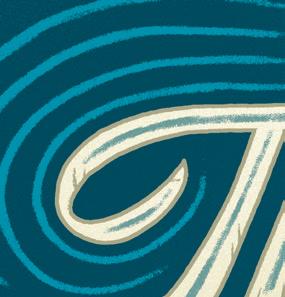



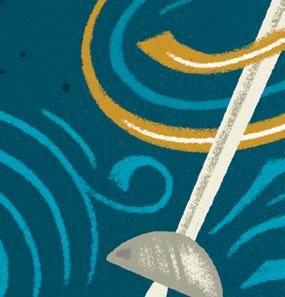
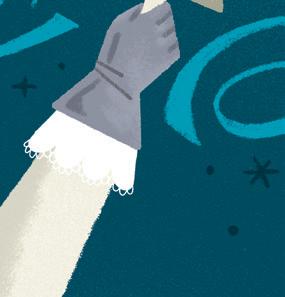




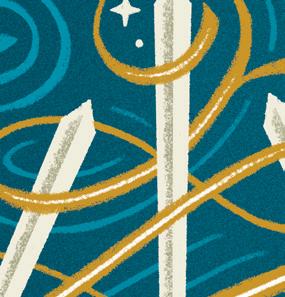

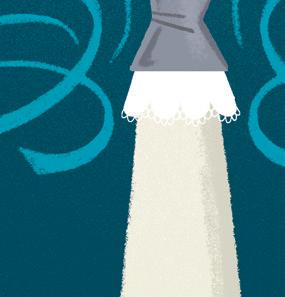





































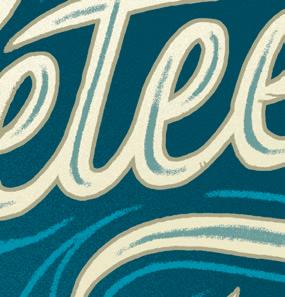
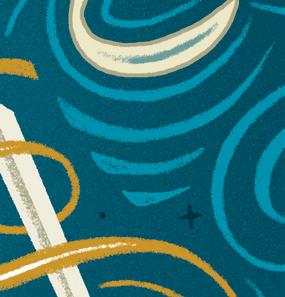
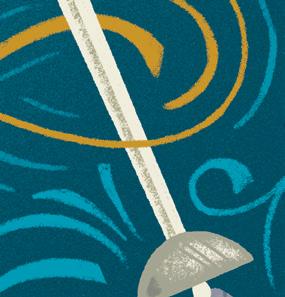
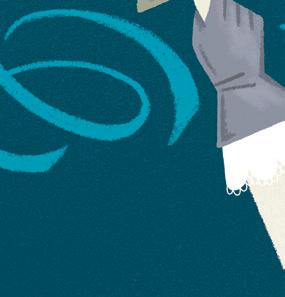

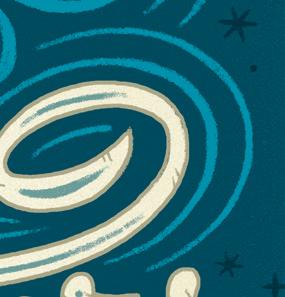
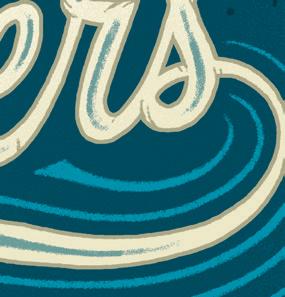

























‘And now, gentlemen, it’s one for all and all for one. That’s our motto, and I think we should stick to it.’










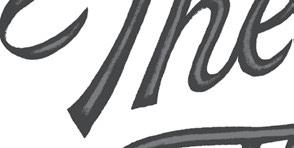





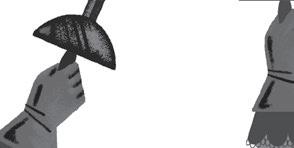





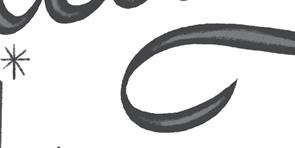


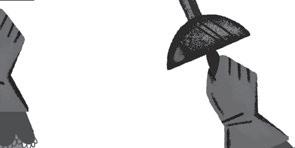










UK | USA | Canada | Ireland | Australia
India | New Zealand | South Africa
Puffin Books is part of the Penguin Random House group of companies whose addresses can be found at global.penguinrandomhouse.com.
www.penguin.co.uk www.puffin.co.uk www.ladybird.co.uk
First published in French in 1844
This translation first published 1952 This abridged edition published by Puffin Books 1986 Reissued 2011, 2019
This edition published 2024 001
The moral right of the author has been asserted.
Set in Minion by Jouve (UK), Milton Keynes Printed and bound in Great Britain by Clays Ltd, Elcograf S.p.A.
The authorized representative in the EEA is Penguin Random House Ireland, Morrison Chambers, 32 Nassau Street, Dublin d02 yh68
A CIP catalogue record for this book is available from the British Library
978–0–241–73437–7
All correspondence to: Puffin Books
Penguin Random House Children’s
One Embassy Gardens, 8 Viaduct Gardens, London w11 7 w
Penguin Random Hous e is committed to a sustainable future for our business, our readers and our planet. is book is made from Forest Stewardship Council® certified paper.
Onthe first Monday of April 1625 , the market town of Meung was in a wild state of excitement. Many of the wealthier citizens, seeing the women running towards the High Street and hearing the children screaming on the doorsteps of their houses, hastily buckled on their cuirasses and, to give themselves an air of greater assurance than they really possessed, seized muskets or halberds. Thus armed they made for the Jolly Miller inn, where they found a dense and excited throng of people swarming in from all directions.
At that time panics were frequent and few days passed without one town or another recording in its archives some event of this kind. Noblemen were at war with one another: the King was at war with the Cardinal: Spain was at war with the King. And besides these public and private wars there were other elements which kept the French countryside in a state of almost perpetual unrest, notably thieves, beggars, Huguenots and rabble of all sorts. The citizens always took up arms against this rabble;
they often fought the noblemen and the Huguenots, sometimes even the King, though never Spain or the Cardinal. So, from sheer force of habit, on this bright April morning, hearing an uproar and seeing neither the red and yellow standard of Spain nor the Duc de Richelieu’s livery, the citizens rushed in a body to the Jolly Miller inn, prepared for battle.
The moment they reached the inn, the cause of the uproar was discovered.
A young man was standing at the main gate, a young man of striking appearance. He was eighteen years of age, tall and lanky, dressed in a blue woollen doublet, faded and threadbare, brown breeches and brown top boots. He had a long, tanned face, high cheekbones – a mark of shrewdness – frank, intelligent eyes, a hooked but well-cut nose, and an enormously protruding, typically Gascon jaw. He wore the Gascon beret, decorated with a jaunty feather, though even without it there would have been no mistaking his origin. His bearing was haughty and his attitude challenging; there was an ‘I’m as good as you are and don’t tell me I’m not’ look about him. An untrained eye might have taken him to be a farmer’s son on a journey but for the long sword which he wore hung from a shoulder strap and which dangled against his calves when he walked, and, when he was astride, against his horse’s rough coat.
It was this horse, indeed, which had first attracted the attention of the crowd. It was a Béarnese cob, twelve to
fourteen years old, with a rat tail and ulcers on its feet, which jogged along mournfully from sunrise till sunset at a steady speed of four miles an hour, drooping its head so low between its knees that it needed no curb or martingale. Unfortunately this animal’s good qualities were not appreciated, so strange was its coat and so awkward its stride. At that time all men were connoisseurs in horseflesh, and the sight of this cob, which had entered Meung by the Beaugency gate some fifteen minutes earlier, caused a sensation which reflected badly on its rider.
And this sensation was very painful to the young man (d’Artagnan was his name) because he was a good horseman and realized that he cut a poor figure. And when Monsieur d’Artagnan the elder had presented it to his son as a parting gift our hero had groaned inwardly, although he knew that the animal was worth at least seven crowns and that the words of wisdom which went with the gift were beyond price.
‘My son,’ the old squire had said, ‘this horse was born in your father’s stables nearly thirteen years ago and has lived here ever since. Treasure it for that reason. Don’t think of selling it. Let it live its normal span and die happy and respected. If you go campaigning with it treat it with the kindness you would show to an old servant. At Court, if you ever go to Court, which, of course, you’re quite entitled to do, seeing who you are, be honest and above board with everyone. Always remember your rank and
carry on the tradition of good behaviour which your family has been true to for the past five hundred years. This you owe to yourself and to your nearest and dearest. Stand no nonsense from anyone but the King and the Cardinal. Remember, nowadays it’s only by personal courage that a man can get on in the world. If you see an opportunity don’t stop to think, but seize it, or you may lose it for ever. If that fails, try something else. You’ve got two good reasons for being brave, first that you’re a Gascon and secondly that you’re my son. Don’t fight shy of adventures; I’d sooner you lived dangerously. I’ve taught you to handle a sword: you’ve got good strong legs and a wrist of steel. Fight at the least provocation, in season and out, because now that duelling’s illegal the man who fights shows himself to be doubly brave. I wish I had more to give you, my dear boy, but here’s all I have: fifteen crowns, my horse, and these few words of advice. Your mother will give you the prescription for a special ointment which she got from an old gypsy woman, and which has the miraculous property of healing all wounds except heart wounds. Make the most of these gifts and may your life be long and happy. There’s just one thing I might add, by the way; I’d like to give you an example to model your life on. Not myself, for I’ve never been to Court and only served as a volunteer in the religious wars. Not myself, I say, but Monsieur de Tréville, who was at one time my neighbour, a Gascon like myself, and who, as a child, was
the honoured playmate of our good King Louis XIII , whom God preserve. Sometimes their childish games became regular tussles and sometimes the King got the worst of it. His Majesty remembers to this day how Monsieur de Tréville used to set about him and has as much respect for him now as he had then. Since then Monsieur de Tréville has had many another tussle; five on his first journey to Paris alone and, between the death of the late King and the coming-of-age of this one, seven more, all serious duels, not counting the various campaigns he fought in. Between this King’s accession to power and the present day he’s fought at least a hundred other duels, perhaps more. He’s defied edicts, ordinances and decrees and see where he’s got to! He’s Captain of the Musketeers, in other words head of a band of daredevil heroes who are high in the King’s favour and who terrify the Cardinal, the great Cardinal, and it takes a good deal to frighten him, as we all know. Added to which Monsieur de Tréville has an income of 10,000 crowns and is therefore a very big man. He started life as you did. Go to him with this letter; do as he tells you and perhaps one day you’ll get where he is.’
With these words Monsieur d’Artagnan the elder buckled his own sword round his son’s waist, kissed him affectionately on both cheeks and gave him his blessing.
The young man left his father’s room and went to say goodbye to his mother, who was waiting for him with the
precious prescription which he was bound to need if he followed the advice of his father. The farewell scene between him and his mother was longer and more affectionate than that between him and his father; not that Monsieur d’Artagnan did not love his son, his only son, but he was a man and therefore thought it wrong to give way to his feelings. Madame d’Artagnan, being a woman, and also a mother, collapsed in her son’s arms and sobbed aloud. Her son tried hard to keep calm as became a future musketeer, but his warmer feelings prevailed and he too shed bitter tears, although he turned his head away as he did so.
That very day the young man set forth armed with his father’s three gifts, the fifteen crowns, the horse and the letter for Monsieur de Tréville; the good advice had been given as an afterthought.
After an uneventful journey, d’Artagnan reached Meung. Here, as he was dismounting at the door of the Jolly Miller without anyone, host, ostler or stable boy, coming to hold his stirrup at the block, he noticed a gentleman standing at a half open window on the ground floor of the inn, a tall, distinguished-looking man with a rather scowling expression. He was talking to two other men, who appeared to be listening to his words with deference. As usual d’Artagnan presumed that he was the object of the conversation and stood listening. This time he was only half mistaken, though it was not he but his
horse which had engaged the gentleman’s attention. The stranger was explaining to his listeners the animal’s points one by one, and his audience appeared to agree with him. And whenever the gentleman spoke his listeners shouted with laughter. The mere suspicion of a smile was enough to anger our young friend, so we can imagine how he reacted to these offensive explosions of mirth.
But d’Artagnan decided first to take stock of this insolent stranger’s appearance. He looked at him haughtily and observed that he was a man of forty to forty-five, with shrewd dark eyes, a pale skin, a pronounced nose and a well-trimmed, black moustache, and that he wore a violet doublet and hose, with no trimmings except the usual slashes through which his shirt appeared. The doublet and hose, though new, appeared creased, like travelling clothes which had long been carried about in a valise. D’Artagnan took in all these details with the speed of an acute observer, and his instincts told him that the stranger was destined to play a big part in his life.
The gentleman chose the very moment at which d’Artagnan was taking stock of him and his violet doublet to make one of his most scholarly and profound observations about the Béarnese cob. His two listeners roared with laughter, and even he allowed the faintest flicker of a smile to pass across his face. This time there was no doubt of it; d’Artagnan had been actually insulted. Convinced of this he pulled his beret down over his eyes
and, aping some of the airs and graces of a courtier which he had learnt from noblemen travelling through Gascony, stepped forward with one hand on his sword hilt and the other on his hip. Unfortunately, as he approached his enemy, his anger increased. He completely lost his head and, instead of protesting like an insulted gentleman, shook his fist and became vulgarly abusive.
‘Hi, there!’ he cried. ‘Yes, you, Sir, skulking behind that shutter! What are you laughing at? When I see a man laughing I always like to be told the joke, so that I can laugh too.’
The gentleman slowly lifted his eyes from the horse to its rider, as though it took him quite a while to realize that he was the object of this rather strange attack; then, as there seemed to be no doubt of it, he frowned slightly and, after a longish pause, answered d’Artagnan in a tone of amused contempt:
‘I was not talking to you, Sir.’
‘No, but I was talking to you, Sir,’ cried the young man, stung by the stranger’s manner, at once easy and supercilious.
The stranger looked again at d’Artagnan with a faint smile and, leaving the window, came slowly out of the inn and took his stand a few steps away from him, facing the horse. His composed look and the sardonic expression in his eyes increased the enjoyment of his companions, who were still standing at the window. D’Artagnan, seeing him
approach, drew his sword a foot’s length out of its scabbard.
‘This horse is definitely a buttercup, or, I should say, has been one at some time or other,’ said the stranger, continuing his examination and addressing his listeners at the window, without appearing to notice d’Artagnan, who, in his rage, had backed round and was now standing between him and them. ‘It’s a colour common in flowers but still very rare in horses.’
‘One can laugh at a horse and still be afraid to laugh at its rider!’ cried Tréville’s pupil in a passion.
‘I don’t often laugh, Sir,’ said the stranger, ‘as no doubt you can tell from my face. But I hold to my right of laughing whenever it suits me.’
‘And I won’t have anyone laughing when it doesn’t suit me!’ cried d’Artagnan.
‘Really, Sir?’ said the stranger more quietly than ever. ‘Well, that’s quite understandable!’
And, turning on his heel, he walked towards the main gate of the inn, under which d’Artagnan, on his arrival, had noticed a saddled and bridled horse. But d’Artagnan was not the man to allow anyone to hold him up to ridicule. He drew his sword right out of its scabbard and ran after the stranger crying:
‘Turn and face me, Sir! I’ve had enough of your damned sneering! Turn and face me or I’ll run you through the back!’
The stranger turned sharply and eyed d’Artagnan with an expression of mingled surprise and scorn. ‘Run me through? Me?’ he cried. ‘What are you talking about? Are you mad?’
Then in an undertone, as though talking to himself, he added: ‘What a pity this is! This young hothead would have made an admirable musketeer. And the King always on the lookout for fresh blood!’
Hardly were the words out of his mouth before d’Artagnan lunged at him so furiously that, had he not stepped quickly aside, he would probably not have lived to make another joke. He now realized that the affair was serious, drew his sword, saluted his opponent and stood on guard. But at that moment the innkeeper and the two who had been standing with the stranger at the window fell on d’Artagnan with sticks, shovels and tongs. This created a diversion so rapid and so complete that, while d’Artagnan turned to defend himself against this rain of blows, his opponent quickly sheathed his sword and once more became a spectator instead of an actor in the drama, a rôle which seemed to become him better. But he muttered to himself:
‘Hell take these Gascons! Why can’t he get on that saffron horse of his and be off!’
‘Not till I’ve killed you, you coward!’ cried d’Artagnan, fighting back hard against his three assailants, who were plastering him with blows.
‘Another of these swaggerers!’ muttered the stranger. ‘God, these Gascons are incorrigible! Well, carry on the fight then, since he insists on it. When he’s had enough he’ll let us know.’
But the stranger did not realize what an obstinate fellow he had to deal with. D’Artagnan was not the man to give in without a struggle. So the fight went on for another few seconds until at last d’Artagnan, in his exhaustion, dropped his sword, which was instantly broken with a heavy blow from a stick. Another blow, levelled at his forehead, knocked him to the ground where he lay prostrate, bleeding and almost unconscious.
It was at this moment that the crowd began to collect from all sides. The innkeeper, fearing a scandal, summoned his stable boys and had the wounded man removed from the scene and carried into the kitchen, where his wounds were roughly dressed. The stranger meanwhile went back to his place at the window and stood looking with some impatience at the crowd outside. Its presence seemed to cause him great annoyance.
‘Well, how’s that young lunatic?’ said he, turning as the door opened and addressing the innkeeper who had come to inquire after his health.
‘I trust Your Excellency’s none the worse?’ asked the innkeeper.
‘No, I’m all right. But I’d like to know what’s happened to our young friend.’
‘He’s calmer now,’ said the innkeeper. ‘In fact he’s fainted.’
‘Oh, he’s fainted, has he?’ said the gentleman.
‘Yes. But before he finally collapsed he staggered to his feet, turned in your direction and shouted a challenge.’
‘That fellow’s the devil himself!’ cried the stranger.
‘Oh no, Sir, he’s not the devil,’ answered the innkeeper with a sneer. ‘I can vouch for that. While he was unconscious we searched him and found that he had only one shirt to his name and only eleven crowns in his purse. But for all that, before he fainted, he said that had such a thing happened in Paris you’d have been made to regret it at once whereas here you’ve got off, though only for the time being.’
‘Oh! If he said that he must be some royal prince in disguise,’ said the stranger coldly.
‘I’m only telling you this to put you on your guard, Your Honour,’ said the innkeeper.
‘Did he mention anybody’s name, by any chance?’
‘Oh yes! He slapped his pocket and said: “We’ll see what Monsieur de Tréville thinks when he hears about this!” ’
‘Monsieur de Tréville!’ exclaimed the stranger with a start. ‘He slapped his pocket and mentioned Monsieur de Tréville! Well now, my good man, don’t tell me you didn’t search that pocket of his while he was lying there. What did you find in it?’
‘A letter addressed to Monsieur de Tréville, Captain of the Musketeers.’
‘Is that a fact?’
‘Yes, Your Honour, it’s as I’m telling you.’
The innkeeper, who was rather dense, did not notice the effect of his words on the stranger. The latter now left the window at which he had been standing with his elbow resting on the sill and came forward, an anxious frown on his face.
‘This is the very devil!’ he muttered to himself. ‘Could Tréville have sent that Gascon against me? He’s a bit young, I know. But a sword thrust’s a sword thrust, no matter who deals it. And a boy might catch me off my guard. A small obstacle can sometimes defeat a great enterprise.’
And the stranger thought for a moment. Then, addressing the innkeeper, he said:
‘Look here, my good man, can’t you get this young lunatic out of the way somehow? I can’t in all conscience kill him. But,’ he added, frowning again, ‘at present he’s a nuisance here. Where is he now?’
‘In my wife’s room on the first floor. They’re dressing his wounds.’
‘I suppose he’s got his clothes and his bag with him and he’s still wearing his doublet!’
‘No, Sir! All his things are down in the kitchen. But if this fellow’s a nuisance to you . . .’
‘Of course he’s a nuisance. He’s causing a disturbance in your inn which decent folk won’t put up with. Go upstairs, make out my bill, and call my servant.’
‘What, Sir? You’re leaving us already?’
‘You know I’m leaving! Didn’t I tell you to get my horse saddled? Hasn’t it been done?’
‘It has been done, Sir. As Your Excellency may have noticed your horse is at the main gate, all ready for the journey.’
‘Well, do as I tell you then.’
The innkeeper looked at his guest with raised eyebrows as though to say:
‘So you’re frightened of that young whippersnapper, are you?’
But a stern look from the stranger brought him to his senses. He bowed low and left the room.
‘That young scamp mustn’t be allowed to see Milady,’ thought the stranger. ‘She’ll be here at any moment. In fact she’s late already. It would really be better if I rode out to meet her. If only I could find out what was in that letter addressed to Tréville.’
And the stranger, muttering these words, made his way slowly down to the kitchen.
Meanwhile, the innkeeper, who was convinced that it was the young man’s presence which had decided the stranger to leave his inn, had gone to his wife’s room where he had found d’Artagnan restored to consciousness. Telling him that he was in for a load of trouble with the authorities for having provoked a nobleman (for in his opinion the stranger was certainly a nobleman),
the innkeeper persuaded d’Artagnan, in spite of his exhaustion, to get up and be off. So d’Artagnan, half dazed, with only his shirt and breeches on and with his head swathed in bandages, staggered to his feet and, urged from behind by the host, went down the stairs. But on reaching the kitchen, the first thing he saw through the window was his enemy standing at the footboard of a heavy coach harnessed to two large Normandy horses, talking to a lady seated inside.
Only this lady’s head and shoulders were visible through the coach window. She was between twenty and twenty-two years old. We have already stated d’Artagnan’s capacity to take in at a glance every detail of a person’s appearance. He therefore noticed at once that the woman was young and beautiful. And her looks struck him more forcibly because they were of a kind entirely foreign to the southern provinces where he was born and bred. The lady was fair and pale, with long, golden ringlets which fell to her shoulders, large, blue, languishing eyes, rose-red lips and hands as white as alabaster. She was talking eagerly to the stranger.
‘So, His Eminence’s orders are . . .’ said the lady.
‘That you return to England at once, and let him know the moment the Duke leaves London.’
‘And what about my other instructions?’ said the beautiful traveller.
‘They’re here, in this box, which you’re not to open till you’ve crossed the Channel.’
‘Very well. And what about you?’
‘I’m returning to Paris.’
‘What! Without putting that rude young puppy in his place?’ asked the lady.
The stranger was about to reply when d’Artagnan, who had heard everything, rushed into the doorway.
‘You’re wrong there!’ he cried. ‘It’s the rude young puppy who’s going to put you in your place! And this time I’ll see you don’t escape as you did before.’
‘Escape?’ repeated the stranger frowning.
‘Yes, Sir! For I don’t suppose even you’ll turn tail in the presence of a woman!’
At this the stranger seized hold of his sword, but the lady quickly intervened.
‘Remember the least delay may prove fatal!’ she cried.
‘You’re right,’ said the stranger. ‘You go your way and I’ll go mine. And let’s be quick about it.’
He bowed to the lady and leapt into the saddle while the coachman whipped up his horses. And the lady and gentleman made off at top speed, disappearing down opposite ends of the street.
‘Coward! Rogue! Call yourself a gentleman!’ cried d’Artagnan, rushing off in turn in pursuit of master and servant.
But the young man was still too weak to indulge in such strenuous efforts. Hardly had he gone ten yards than his ears began to throb, giddiness seized him, the blood
rushed to his head and he collapsed in the middle of the street still yelling:
‘Coward! Coward! Coward!’
The innkeeper walked up to him as he lay prostrate. ‘Yes, he’s a coward all right,’ he said.
He hoped by this piece of servility to get on good terms with the impoverished young man.
‘Yes, a proper coward,’ gasped d’Artagnan. ‘But she, how lovely she is!’
‘She? What she?’ asked the innkeeper.
‘Milady,’ stammered d’Artagnan.
And then he fainted for the second time.
‘It doesn’t really matter,’ thought the innkeeper. ‘I’ve lost two customers, but kept one, and this fellow’ll be here for several days. So in any case I’m bound to be eleven crowns up.’
We know that eleven crowns was the exact sum still left in d’Artagnan’s purse.
The innkeeper had reckoned on eleven days’ illness at the rate of a crown a day. But he hadn’t reckoned with his guest. At five o’clock next morning d’Artagnan got up, went down himself to the kitchen and asked for wine, oil, rosemary, and various other items needed for an ointment. Then, with his mother’s prescription in front of him, he prepared this ointment and with it proceeded to dress and redress his many wounds, refusing all outside aid. Thanks no doubt to the healing properties of the gypsy’s ointment
and also perhaps to the absence of the doctor d’Artagnan was up and about that very evening, and next day almost well again.
Now it was a question of paying for the wine, oil and rosemary. This was, in fact, our hero’s only debt, for he had himself refused all nourishment, although, from what the innkeeper said, the yellow nag had devoured three times more than one would have thought possible for a beast of its size. But when the young man felt in his pocket for the money he found only his little threadbare, velvet purse containing the eleven crowns: the letter to Monsieur de Tréville had disappeared.
For a while the young man searched patiently for the letter, turning his breast and waist pockets inside out twenty times and more, rummaging about in his bag and delving into his purse. But when it dawned on him that the letter was really and truly missing he was seized with a further attack of rage which nearly called for a fresh supply of the spiced wine and oil. For when the innkeeper saw our fractious young friend getting excited and threatening to break up the whole house if his letter were not returned to him he seized hold of a pike while his wife took up a broom and his boys armed themselves with the sticks which they had so successfully wielded two days before.
‘My letter! My letter of introduction!’ cried d’Artagnan. ‘Give it back or, by God, I’ll run you all through like larks on a spit!’
Unfortunately one thing stood in the way of our young friend carrying out his threat. His sword had been split in two in the original fight, and this he had forgotten. The result was that when he grasped the hilt he found himself armed with a mere stump eight to ten inches long, which the innkeeper had carefully replaced inside the scabbard.
But our young hothead would probably have carried on in spite of this setback had not the innkeeper suddenly realized that his claim was perfectly justified.
‘Now wait a moment!’ said he, lowering his pike. ‘I wonder where that letter is!’
‘Yes, where is it?’ cried d’Artagnan. ‘Listen, my good man! That letter is for Monsieur de Tréville and must be found. If it’s not found now you may be sure he’ll get it out of you later.’
With this threat d’Artagnan succeeded in bringing the innkeeper to heel. Next to the King and the Cardinal, Monsieur de Tréville was more spoken of by soldiers, and even by civilians, than any man in the kingdom.
So, throwing away his pike and ordering his wife to put back her broom and his boys their sticks, the innkeeper set to work to search for the missing letter.
‘Did this letter contain anything of value?’ he asked, after searching fruitlessly for some time.
‘Good God! I should say it did!’ cried the Gascon, who was relying on this letter to give him an entry into Court circles.
Suddenly the innkeeper, who was cursing himself for a fool, had an inspiration.
‘That letter’s not lost!’ he cried.
‘Not lost?’ repeated d’Artagnan.
‘No. It’s been stolen from you.’
‘Stolen? Who by?’
‘By the gentleman who was here yesterday. He went down to the kitchen where your doublet was. He was alone in there. I’m ready to bet he stole the letter.’
‘Oh! So you think he stole it!’ replied d’Artagnan without much conviction. He knew quite well that the letter was of merely personal value and could not imagine that anyone would want to steal it. It was obvious that none of the guests or servants at present at the inn would have had any use for it.
‘So you really and truly suspect that gentleman?’ continued d’Artagnan.
‘I repeat, I’m sure of it,’ replied the innkeeper. ‘When I told him Your Excellency was Monsieur de Tréville’s protégé and that you even had a letter with that great man’s name on it he seemed very upset. He asked me where the letter was and went down at once to the kitchen where he knew he’d find your doublet.’
‘Ha! So he is the thief after all!’ replied d’Artagnan. ‘I shall inform Monsieur de Tréville of this and he’ll tell the King.’
Then, with a flourish, he drew two crowns from his pocket and tossed them to the innkeeper, who, cap in hand, went with him to the door. D’Artagnan now leapt on to his yellow horse and finally, after a long and
exhausting ride, reached the Porte St Antoine in Paris. Here he sold the horse for the sum of three crowns, which was a good price considering that it had been hard pressed for the last stage of the journey. The dealer who bought the horse declared that he only paid this enormous sum because of the animal’s unusual colour.
So d’Artagnan eventually entered Paris on foot, carrying all his worldly goods under his arm. He wandered about the streets until he at last found a room to let at a price which suited his slender means, a mere attic in the Rue des Fossoyeurs, near the Luxembourg.
After paying his deposit d’Artagnan settled himself in his new quarters and spent the rest of the day sewing on to his doublet and hose certain trimmings which his mother had unstitched from an almost new doublet belonging to his father and given to him on the sly. Then he visited the Quai de la Féraille to have a new blade fitted to his sword, later returning to the Louvre to enquire from the first musketeer whom he happened to meet the whereabouts of Monsieur de Tréville’s house. When he learnt that it was in the Rue du Vieux Colombier, quite close to his own little attic, his spirits rose, for he considered this a good omen for the success of his journey.
Finally, thoroughly satisfied with the way he had behaved at Meung, without regret for the past, confident in the present, and hopeful for the future, he went to bed and slept the sleep of the just.
Monsieur de Tréville had in point of fact started life as d’Artagnan had done; that is to say, without a penny piece to his name but with a fund of quick wit, dash and persistence. His courage, assurance and unfailing good luck had been proof against the hard knocks for which that age was so renowned, and he had soon reached the top of that difficult ladder known as Court Favour, scaling it four rungs at a time. Louis XIII had made him captain of his Musketeers.
When the Cardinal saw the formidable army with which Louis XIII was surrounded he, as the joint or perhaps the sole ruler in France, was determined also to have his bodyguard. So like Louis XIII Richelieu had his musketeers, and these two rival powers were to be seen scouring the provinces of France and the neighbouring countries of Europe for men renowned for their skill in swordsmanship, to enlist them in their regiments. And King and Cardinal often wrangled in the evenings over their games of chess about the relative merits of their
adherents. Each boasted of the courage and bearing of his men and, whilst they openly decreed against duelling and brawling, each secretly urged his followers to challenge the other’s, grieving at any defeat and rejoicing wholeheartedly at any victory sustained by his own side.
Tréville had always pandered to his master’s weakness, and it was to this shrewdness that he owed his long period of favour with a sovereign who has left behind him a name for inconstancy. It was Tréville’s habit to make his musketeers parade in front of the Cardinal with an insolent air which made His Eminence’s grey moustache curl with rage. Tréville had an excellent understanding of the warlike spirit of the age, in which men, when not despoiling the enemy, lived by despoiling each other. His soldiers were a regiment of daredevils, unruly in their behaviour towards everyone but himself.
The King’s Musketeers, or rather Monsieur de Tréville’s Musketeers, were to be seen in all the taverns, walks and fairgrounds of the city. Their faces scarred from duelling, they would lounge about with their jackets unbuttoned, shouting, twirling their moustaches and clanking their swords. They went out of their way to jostle the Cardinal’s guards and would challenge them openly in the streets with a smile on their lips and mischief in their hearts. Some of the musketeers would fall in these battles; then they were sure of being mourned and avenged; more often they killed their man in the full certainty that they would
not be allowed to languish in prison, for ‘Monsieur de Tréville was there to demand their release’. Thus Monsieur de Tréville’s praises were sung at every street corner by these men who adored him and who, hard-bitten as they were, trembled in his presence like schoolboys in the presence of their master, ready to obey his every whim and to die to wipe out the slightest reproof from their beloved leader.
From six o’dock in the morning in summer and in winter from eight the courtyard of his house in the Rue du Vieux Colombier resembled a camp. Between fifty and sixty musketeers were always stationed there. These musketeers apparently came in relays and took alternate duty, so that the courtyard should always present an impressive display of arms and men. Up one of the great staircases filed an endless procession of toadies coming to ask some favour of the great man, of young gentlemen from the provinces, candidates for army commissions, and of footmen in different coloured liveries bringing messages for Monsieur de Tréville from their masters. In the ante-room, on long curved divans, waited the elect, that is to say those who had come by appointment. There was a buzz of conversation in this ante-room from morning till night, while Monsieur de Tréville, in his adjoining room, received visits, listened to petitions, gave his orders and, like the King on his balcony at the Louvre, had only to go to his window to survey his men on guard below.
On the day upon which d’Artagnan arrived the crowd was impressive, especially to a country lad straight from the provinces. It is true that our country lad was a Gascon and that at that time d’Artagnan’s compatriots had a reputation for not being easily daunted. But it would have been a brave man indeed who could pass through the massive door studded with large, square-headed nails and not feel cold to the marrow of his bones when confronted with the seething mob of noisy, quarrelsome, boisterous swordsmen which composed Monsieur de Tréville’s bodyguard.
So it was with a thumping heart that d’Artagnan advanced into the middle of this crowd, pressing his sword tight against his lanky leg, holding on to his plumed hat with one hand and wearing the forced grin of a shy country-cousin who wants to appear at his ease. Having passed one group of swordsmen he began to breathe more freely, although he realized that they were all turning to look at him. For the first time in his life our hero, who had till then thought quite highly of himself, began to feel ridiculous.
When he reached the staircase matters became even worse, for on the bottom steps four musketeers were engaged in some form of swordplay, while on the landing above stood a dozen more, waiting their turn to join in.
The game they were playing was an original one and held d’Artagnan spellbound. Of the four men fighting at
the foot of the staircase one stood on a higher step than the others and tried with his sword to prevent his opponents from getting past him. All four thrust and parried with lightning agility. D’Artagnan at first mistook their blades for fencing-foils, buttoned at the tip, but, seeing the wounds inflicted, he soon realized that they were fighting with real, perfectly sharpened swords. Whenever anyone received a scratch both victim and onlookers laughed uproariously.
Though our young traveller had decided not to show any naïve astonishment, this pastime made him positively gasp. There were many hotheads in his native province certainly, but even there duelling was always accompanied by certain rites, and he had never before seen anything to equal the swagger of these four bloods, even in Gascony. He felt like Gulliver, suddenly transported into a country of fabulous giants. And he had not yet reached his goal; he had still to cross the landing and the ante-room.
There was no fighting on the landing. Here the men were telling stories about women and in the ante-room tales about the Court. D’Artagnan blushed on the landing and shuddered in the ante-room. His imagination, which was lively enough and which had made him formidable to Gascon housemaids and even to their young mistresses, boggled at these tales of amorous adventures and of prowess in the arts of love; tales made more wonderful by the mention of names famous throughout France and by
the daring details with which they were embellished. Our hero’s morals were shocked on the landing and, worse still, his respect for the Cardinal was outraged in the anteroom. There to his amazement he heard the policy which made all Europe tremble, and the Cardinal’s private life, which so many high and mighty lords had been punished for attempting to investigate, criticized aloud. This great man, revered by Monsieur d’Artagnan the elder, was a butt for the wit of Monsieur de Tréville’s musketeers, who mocked his bandy legs and hunched shoulders. Some of these gentlemen made obscene rhymes about his mistress Madame d’Aiguillon and about his niece Madame de Combalet, whilst others planned all kinds of practical jokes to play against his pages and guards. All this frivolity seemed to d’Artagnan monstrous and impossible.
And yet, whenever by accident the King’s name came up in the conversation, some invisible gag seemed to bind these gentlemen’s mouths. They would look round timidly as though they feared that the dividing wall between them and Monsieur de Tréville’s private study might betray their indiscretion. Then some new mention would be made of His Eminence, upon which the wits began once more to sparkle and all the Cardinal’s actions were brought into the hard light of day and criticized.
‘These people are bound to be sent to the Bastille and hanged,’ thought the terrified d’Artagnan. ‘And I shall probably go with them, for the fact that I’ve seen them
and listened to their talk makes me their accomplice. My father taught me to respect the Cardinal. What would he say if he saw me with all these pagans?’
D’Artagnan, as we know, was a complete stranger in this crowd of courtiers and had never been sent here before, so one of Monsieur de Tréville’s household soon came up and asked him his business. Our hero modestly gave his name, stressed his Gascon nationality, and asked the servant to beg a moment’s audience of his master. The servant condescendingly promised to pass on this message to his master in due course.
Our young hero had at last slightly recovered his poise and now had leisure to look round him and take note of the appearance and dress of the Musketeers.
In the centre of the most lively group stood a tall, supercilious-looking fellow dressed in a fashion so peculiar as to attract attention. Though on duty, he happened at that moment not to be wearing the regulation dress coat but was showing himself off in a sky-blue doublet, slightly faded and threadbare, strapped across with a magnificent shoulder belt trimmed with gold lace, which glittered like rippling water in the sunlight. A long crimson velvet cloak hung gracefully from his shoulders, revealing only the front part of the shoulder belt, from which hung an enormous rapier.
This musketeer had just come off guard. He complained of a cold and coughed affectedly from time to time. It was
for that reason, he said, that he had put on the cloak. He kept talking at the top of his voice and twirling his moustaches, exposing his embroidered shoulder belt to the admiring gaze of the onlookers, d’Artagnan among them.
‘It can’t be helped,’ the musketeer was saying. ‘It’s the fashion now. It’s silly, I know, but there you are. It’s the fashion, so one must conform. And besides, one must spend one’s allowance somehow.’
‘Oh, come on, Porthos,’ cried one of his admirers, ‘don’t try and pretend that shoulder belt was bought out of your father’s allowance. I know who gave it to you; it was the veiled lady I saw you with last Sunday near the Porte St Honoré.’
‘I swear it wasn’t! I bought it myself, with my own money,’ replied the man referred to as Porthos.
‘Yes,’ retorted another musketeer, ‘just as I bought this new purse with the money my mistress put into my old one.’
‘But it’s true what I’m telling you!’ cried Porthos. ‘Listen! I can prove it. I paid twelve pistoles for it!’
This remark increased everyone’s admiration of the belt, but it did not dispel their doubts.
‘It’s true, isn’t it, Aramis?’ cried Porthos, turning to another musketeer.
This other musketeer, Aramis, was a complete contrast to his friend, both in looks and dress. He was a young
man, barely twenty-three, with a demure and innocent expression, dark, gentle eyes and downy pink cheeks like an autumn peach. His neat moustache formed a perfectly straight line on his upper lip: he seemed afraid to lower his hands for fear their veins might swell and he kept pinching the ends of his ears to preserve their delicate, shell-pink colour. He said very little and when he spoke he drawled. He was always making graceful bows, and when he laughed, he laughed noiselessly, baring pearly teeth which, like the rest of his person, he tended with care. To his friend’s appeal he replied with a nod.
Suddenly the door leading into Monsieur de Tréville’s study opened and a lackey called out:
‘Monsieur de Tréville awaits Monsieur d’Artagnan!’
At this a hush fell on everyone and in the general silence our young Gascon made his way across the ante-room and entered the Captain’s study.
Monsieur de Tréville happened at that moment to be in a very bad temper. However, he greeted the young man civilly enough, and when d’Artagnan bowed low and paid his respects, de Tréville smiled, for the young man’s Béarnese brogue reminded him of his youth and of his native land, and whose heart is not softened at the recollection of home and childhood? De Tréville then went across to the ante-room and, signing to d’Artagnan that he would attend to him after he had dealt with more pressing business, called three times in a loud voice:
‘Athos! Porthos! Aramis!’
The two musketeers to whom we have already been introduced and who answered to the names of Porthos and Aramis at once left their circle of friends and went into Monsieur de Tréville’s study.
When the door had closed behind the two musketeers and the buzz of conversation in the ante-room had started again, stimulated perhaps by this sudden sharp summons, de Tréville began pacing up and down his study, silent
and frowning, passing to and fro in front of Porthos and Aramis, who were standing stiffly at attention as though on parade. He suddenly stopped in front of them, eyed them from head to foot and said irritably:
‘D’you know what the King said to me last night, gentlemen?’
‘No, Sir,’ replied the two musketeers after a moment’s silence.
‘He said that from now on he’d recruit his musketeers from the Cardinal’s guards.’
‘From the Cardinal’s guards?’ exclaimed Porthos sharply. ‘Why on earth?’
‘Because he realized that his wine hadn’t much body to it and needed livening up with a fresh vintage.’
The two musketeers blushed scarlet. D’Artagnan was thoroughly embarrassed and longed for the earth to open and swallow him up.
‘Yes, that’s what the King said,’ went on Monsieur de Tréville, raising his voice, ‘and he was perfectly right. The musketeers’ credit has sunk pretty low at Court, I may tell you! Last night, when they were playing chess together, the Cardinal was telling the King, with a note of mock sympathy in his voice which maddened me, how two days ago you damned musketeers, you “daredevils”, you “swashbucklers” – yes, that’s what he called you, though sneeringly, mind you, and looking at me out of the corner of his eye all the time – how you swashbucklers had been
loitering in an inn in the Rue Férou and that a platoon of his guards, on its rounds, had been forced to arrest you as disturbers of the peace. I really thought he was going to laugh in my face. Arresting musketeers! Whoever heard of such a thing! You two were among that lot. You must know about this. You were recognized and the Cardinal mentioned your names. What have you got to say for yourselves? Oh, I know it’s all my fault, really. I’ve got a bad habit of picking my own men. Aramis! Why the hell did you ask for a uniform when what you really wanted was a cassock? And you, Porthos, with that fine lace sash of yours! What’s it for, anyway? To hang a monocle on? And Athos! Where’s Athos? Why isn’t he here?’
‘Athos is ill, Sir, very ill,’ answered Aramis, with a mournful look on his face.
‘Ill? What’s the matter with him?’
‘They’re afraid it’s smallpox, Sir,’ said Porthos. ‘It would be a shame if it were, because it would quite spoil his looks.’
‘Smallpox! A likely story! Smallpox at his age! Rubbish! No, he’s probably wounded or perhaps even killed. Now listen, you musketeers! I won’t have you visiting low haunts, brawling in the streets and duelling in the public squares. In fact I won’t have you making idiots of yourselves in front of the Cardinal’s guards. They’re good fellows, those guards, quiet and well-behaved. They’d never land themselves in such a mess and, if they did,
they’d die rather than yield an inch. Turn tail? Scuttle off? Oh no! That’s a thing only the King’s Musketeers do!’
Porthos and Aramis were trembling with rage. They would gladly have strangled Monsieur de Tréville on the spot, but in their heart of hearts they knew that it was only his great affection for them which made him take that tone. They stood and glowered at their Captain, biting their lips to control themselves and instinctively clutching at their sword hilts. Everyone in the ante-room had heard Monsieur de Tréville summoning Athos, Porthos and Aramis, and had guessed from the tone of his voice that he was in a rage. Now curiosity prevailed over caution and at least a dozen of the musketeers were standing with their ears glued to the tapestry, and their faces were white with fury for they had overheard every word of what was being said and were repeating to the company at large each of Monsieur de Tréville’s insulting remarks in turn as it was uttered. In an instant the news had travelled from one end of the house to the other and all the men were fuming.
‘Ha! So the King’s Musketeers allow themselves to be arrested by the Cardinal’s guards! God, what a story!’ went on de Tréville. He was inwardly just as furious as his soldiers, but his voice was hard and clear and he clipped his words and plunged them one by one, like poisoned darts, into the hearts of his listeners. ‘Six of the King’s Musketeers arrested by six of the Cardinal’s guards! That’s the end as far as I’m concerned. I’m going straight off to
the Louvre to offer my resignation as Captain of the Musketeers and to beg for a lieutenancy under the Cardinal. And if my offer’s turned down I shall take to religion. Yes, by God, I’ll take Holy Orders!’
‘Well, Sir,’ said Porthos, beside himself with rage, ‘it was like this. We were six against six but we were taken by surprise, and before we had time to draw our swords two of our fellows had been killed and Athos himself badly wounded. You know Athos well enough, don’t you, Sir? Well, he tried twice to get up and fell back each time. Even then we didn’t give in but were beaten by sheer weight of numbers. In the end we managed to escape. As for Athos they thought he was dead and didn’t even bother to carry him away. There you have the whole damned business. Hang it all, Sir, one can’t win every battle!’
‘And I may tell you, Sir, I ran one of the blighters through with his own sword,’ said Aramis, ‘for I broke mine with my first thrust.’
‘I didn’t know that,’ said de Tréville, slightly mollified. ‘The Cardinal must have been exaggerating.’
Aramis, seeing that Monsieur de Tréville was calming down and wishing to put in a plea for his friend, said: ‘Please, Sir, don’t let it get around that Athos has been wounded. It would break his heart if the King got to hear of it. And his wound’s really very serious; he was run through the shoulder and the point of the blade went into his chest. We’re afraid . . .’
At that moment the curtain of the door was drawn aside and a man appeared. He was strikingly handsome but desperately pale.
‘Athos!’ cried the two musketeers in chorus.
‘Athos!’ echoed Monsieur de Tréville.
‘You sent for me, Sir,’ said Athos to his officer in a calm but rather weak voice. ‘The fellows outside told me you wanted me. So I’ve come to report. At your service, Sir, now as always!’
With these words the musketeer stepped smartly into the room. He was, as usual, faultlessly turned out and showed no sign of having been in the wars. Monsieur de Tréville, moved by this soldierly display of courage, rushed towards him.
‘I was just telling these gentlemen,’ said he, ‘that I won’t have my musketeers risking their lives unnecessarily. The King rates courage very high and he knows his musketeers are the bravest fellows in the world. Athos, give me your hand!’
And before Athos had time to reply to this affectionate welcome Monsieur de Tréville took hold of his right hand and gripped it hard, not noticing the pain he was causing the young man, who, for all his self control, winced a little and grew, if possible, even paler than before.
The door had remained half open, for Athos’s arrival had caused a sensation. Everyone knew that he had been wounded, although it was supposed to be a dead secret. A
murmur of applause from outside greeted the captain’s last words and in their excitement two or three musketeers actually peered through the chinks in the tapestry. At any other time Monsieur de Tréville would have dealt harshly with this breach of etiquette, but he felt Athos’s hand clutch his convulsively and, looking at him, saw that he was about to faint. Athos, who had managed only with a great effort to conceal his pain, was now unable to hold out any longer and fell like a log to the ground.
‘A doctor! Call a doctor!’ cried Monsieur de Tréville. ‘My doctor! The King’s doctor! The best man that can be found! Call a doctor or, by God, our good Athos will die on the spot!’
Hearing Monsieur de Tréville’s cries everyone burst into his study before he had time to stop them and crowded round the wounded man. This display of zeal and concern on the part of the musketeers would not have helped much if the doctor had not happened to be in the house at that very moment. He elbowed his way through the crowd and knelt down beside the unconscious Athos; then, as all the noise and bustle disturbed him, he insisted first and foremost on having the musketeer removed to the adjoining room. Monsieur de Tréville at once opened a door and showed the way to Porthos and Aramis, who lifted up the unconscious man and carried him out in their arms. Behind them walked the doctor and the door was then closed.
Monsieur de Tréville’s study, usually so sacrosanct, had now become a mere annexe of the ante-room. Everyone was holding forth, shouting, swearing, and wishing the Cardinal and his bodyguard in hell.
A moment later Porthos and Aramis reappeared, leaving the doctor and de Tréville alone with the wounded man.
Finally de Tréville himself reappeared. The wounded man had regained consciousness and the doctor had diagnosed his condition as not serious and his collapse as due merely to loss of blood.
Monsieur de Tréville now made a sign to everyone to leave the room. The whole company withdrew with the exception of d’Artagnan, who had not forgotten that he had been granted an audience and had stood his ground with true Gascon persistence.
When everyone had gone and the door was closed Monsieur de Tréville turned and found himself alone with the young man. The scene which had just taken place had interrupted his train of thought. He asked our importunate hero what he could do for him. D’Artagnan then repeated his name. In a flash Monsieur de Tréville remembered everything and was once more master of the situation.
‘Forgive me,’ he said, ‘forgive me, my dear fellowGascon. I’d completely forgotten you! Well, you see how it is! An officer’s merely a family man burdened with heavier responsibilities than an ordinary father. Soldiers are really
mere children, but it’s my duty to see that the King’s orders are carried out and still more the Cardinal’s.’
D’Artagnan could not help smiling at this, and when de Tréville saw him smile he realized that he had no fool to deal with. He changed the conversation and came straight to the point.
‘Your father was a good friend of mine,’ he said. ‘What can I do for you? Tell me quickly. My time’s not my own, you know.’
‘Sir,’ said d’Artagnan, ‘I came here hoping that my father’s friendship with you would get me a commission in the Musketeers. But from what I’ve seen in the last two hours, I realize that I’m asking a great deal of you. I’m afraid you may think I’m not qualified for the honour.’
‘Yes, it’s an honour all right,’ answered Monsieur de Tréville, ‘but it may not be quite so far above your head as you think. But His Majesty’s made a strict ruling on this point, and I’m sorry to say that no man can join the Musketeers until he’s first proved himself, either in some campaign, or by some act of conspicuous gallantry, or by serving two years in some other regiment less select than ours.’
D’Artagnan bowed and said nothing. The distinction of a musketeer’s uniform appealed to him even more now that he knew how many obstacles stood in the way of his wearing one.
‘But,’ continued Monsieur de Tréville, looking keenly at his young compatriot as though he wanted to read his thoughts, ‘I repeat, for the sake of my old and trusted friend, your father, I’m prepared to do you a special favour. I don’t suppose you’ve got much money to spare after paying for your board and lodging.’
D’Artagnan drew himself up proudly as though to show that he would not take charity from any man.
‘All right, all right, young fellow,’ went on Tréville. ‘There’s no need to put on these airs with me. I came to Paris myself with four crowns in my pocket and I’d have slaughtered anyone who dared say I wasn’t rich enough to buy the Louvre.’
D’Artagnan remembered that the sale of his horse had made him four crowns better off than Tréville had been. So his only reply was to draw himself up higher still.
‘As I was saying,’ went on Tréville, ‘you’d better cling on to whatever money you’ve got in your pocket. But you also need to learn the accomplishments of a gentleman. So I’ll write today to the Director of the Royal Academy and he’ll admit you free of charge tomorrow. Don’t refuse this small favour. The highest and richest in the land often ask for it and don’t get it. You’ll learn horsemanship, fencing and dancing. You’ll meet the right people and from time to time you can look me up and tell me how you’re getting on. And if there’s anything I can do for you, I’ll do it.’
D’Artagnan knew nothing of Court manners, but even he could tell that Monsieur de Tréville’s reception of him was merely formal and would probably lead nowhere.
‘I’m more than sorry, Sir,’ he said, ‘not to have my father’s letter of introduction to give you. I see now what a help it would have been.’
‘Yes,’ answered de Tréville. ‘I must admit I’m surprised you came all this way without something of that sort.’
‘I had a letter when I started, Sir,’ cried d’Artagnan. ‘And it was all in proper form. But some scoundrel stole it from me on the way.’
And he told the whole story of the Meung adventure, giving such a lively and detailed description of the stranger’s appearance that Monsieur de Tréville was completely won over.
‘I agree, it’s a strange thing to have happened,’ he said. He thought for a moment and then added:
‘You say you mentioned my name out loud?’
‘Yes, Sir. I’m afraid I was a bit indiscreet. I was counting on your name to be a kind of shield and buckler for me on the journey. I confess I did take cover behind it once or twice.’
‘Tell me,’ Monsieur de Tréville went on, ‘did this gentleman have a faint scar on his cheek?’
‘Yes. The sort of mark that might have been made by a bullet grazing it.’
‘He was a good-looking fellow, wasn’t he?’
‘Yes.’
‘Tall?’
‘Yes.’
‘With dark hair and a sallow skin?’
‘Yes, Sir. That’s the man all right. How do you come to know him, Sir? Oh, if I ever catch that fellow again, and I’ll get him, I swear I will, even if I go to hell for it . . .’
‘He was waiting for a woman, you say?’ went on Tréville.
‘Yes, Sir. The lady drove up to the inn; the fellow had a hurried conversation with her and then rode off at the gallop.’
‘You didn’t by any chance hear what they said, did you?’
‘Yes. He gave her a box, told her she’d find her orders in it and that she wasn’t to open it till she’d got to London.’
‘Was she an English woman?’
‘He called her Milady.’
‘Yes. That’s the fellow all right,’ muttered de Tréville to himself.
‘Oh, Sir!’ cried d’Artagnan. ‘If you know this fellow tell me his name and nationality. I’ll ask nothing more of you, I swear I won’t. I won’t even hold you to your promise of making me a musketeer. I’m mad to get my revenge.’
‘Put that idea right out of your head, my lad!’ cried de Tréville. ‘Keep well out of that fellow’s way, and if ever you see him coming down the street cross over quickly to the other side. Don’t go butting against that stone wall; you’ll get battered to bits.’
‘I don’t care,’ said d’Artagnan. ‘If ever I see that fellow . . .’
‘You’re a good lad, but at present I can’t do more for you than I’ve already promised. I shall always be glad to see you here. Later, when you’re free to call on me at any time and to catch me on an off moment, you’ll probably get what you want out of me.’
‘In other words, Sir,’ replied d’Artagnan, ‘you’re waiting for me to prove what I’m good for. Well, don’t worry,’ he added with a Gascon’s cheek, ‘you won’t have to wait long.’
He bowed to the captain and turned abruptly to leave the room, as though the future were now his concern, and his concern alone. But Monsieur de Tréville called him back.
‘Just a moment,’ he said, ‘I promised you a letter to the Director of the Academy. Are you too proud to take it, my lad?’
‘No, Sir,’ replied d’Artagnan. ‘And I promise you it won’t go the way the other one went. I’ll see this one gets home all right, and if any man tries to steal it from me, I’ll slit his throat for him.’
De Tréville smiled at this piece of swagger. He left his young compatriot at the window where they had been standing talking, sat down at a table and started to write the letter of introduction. Meanwhile d’Artagnan, who had nothing to do, tapped with his fingers on the windowpane and watched the musketeers leave the house one by
one, following them with his eyes until they disappeared round the corner of the street.
Monsieur de Tréville finished the letter, sealed it and got up, meaning to hand it to the young man. But at that very moment to his great surprise the young man gave a sudden start, flushed angrily and, totally ignoring his host and the letter, rushed out of the study crying:
‘Ye Gods! This time he won’t escape me!’
‘Who won’t escape you?’ cried the captain in amazement.
‘The thief, of course,’ cried d’Artagnan. ‘Oh, I’ll get him, the yellow rat!’
And he disappeared through the door.
D’Artagnan in his fury crossed the ante-room in three strides and sprang on to the staircase, meaning to run down it four steps at a time. But in his mad rush he collided with a musketeer who was leaving Monsieur de Tréville’s apartments by a private door, and gave him such a hard butt on the shoulder with his head that the musketeer let out a yell.
‘I’m sorry!’ said d’Artagnan. ‘I’m in a bit of a hurry, I’m afraid.’ And he tried to rush on.
But he had only gone one step down the staircase when he felt a strong grip on his shoulder which held him back. Turning round he saw the musketeer glaring at him, as white as a sheet. It was Athos, who was on his way home after having had his wounds dressed by the doctor.
‘You’re in a hurry, are you?’ cried Athos. ‘You’re in a hurry, you shove me, you say “I’m sorry” and you think that’s enough! Well it isn’t, my lad. D’you think because you heard Monsieur de Tréville laying into me this
morning that you’ve got a right to lay me out now? Don’t you believe it. You’re not Monsieur de Tréville.’
‘But I didn’t do it on purpose,’ answered d’Artagnan. ‘It was an accident and I apologized for it. I can’t do more than that. Now please let go of me. I’m in a hurry. I’ve got something important to do.’
Athos let go of him. ‘Your manners are bad, Sir,’ he said. ‘You’re obviously just up from the country.’
D’Artagnan had already skipped three or four steps but Athos’s remark brought him up short.
‘Look here, Sir,’ he said. ‘I may be just up from the country, as you call it, but I won’t be taught manners by you!’
‘Oh, won’t you?’
‘No, by God, I won’t,’ cried d’Artagnan. ‘And if I wasn’t in such a hurry, if I wasn’t running after someone . . .’
‘You may be in a hurry now, Sir, but you don’t need to run to find me, you know!’
‘Where shall I find you then?’
‘Near the Carmelite Convent.’
‘What time?’
‘About midday.’
‘Midday? Right! I’ll be there.’
‘And don’t keep me waiting! I want to have those ears of yours off by twelve-fifteen.’
‘Fine,’ said d’Artagnan. ‘I’ll be with you on the stroke of twelve.’
And off he started again like a madman, hoping to overtake his enemy who, at the rate he was walking, could not have gone far.
But Porthos was standing at the street door, talking to a soldier in the King’s Guards. There was just enough space between them for a man to pass and d’Artagnan, thinking he had enough room, darted between them like an arrow. But he hadn’t reckoned with the wind. Just as he was passing the wind blew out Porthos’s long cloak, and d’Artagnan charged straight into it. Porthos obviously had some good reason for clinging on to this important part of his dress, for, instead of letting go of it, he drew it closer to him. The result was that d’Artagnan got entangled in the velvet folds, and when he turned to loosen himself only coiled himself tighter still.
Hearing the musketeer swear, our hero tried to get out from underneath the cloak, which was blinding him, and looked everywhere for an opening. He was afraid that he might have soiled the magnificent shoulder belt which, we remember, was Porthos’s pride and joy. But when he timidly opened his eyes he found himself with his nose glued to the middle of Porthos’s back, in other words right against the shoulder belt.
Alas! Like most things in this world which are good only on the outside, the shoulder belt was embroidered with gold in front but plain buff at the back. Porthos, though a great bragger, was none too rich. He could not